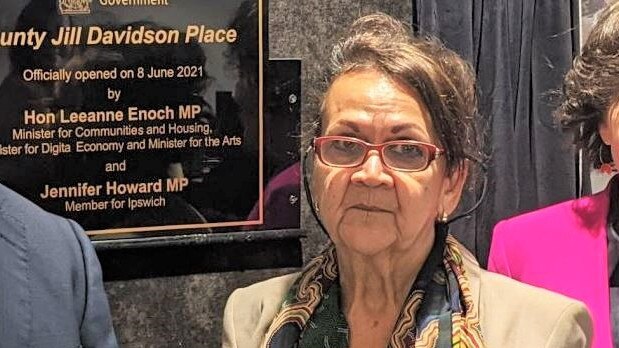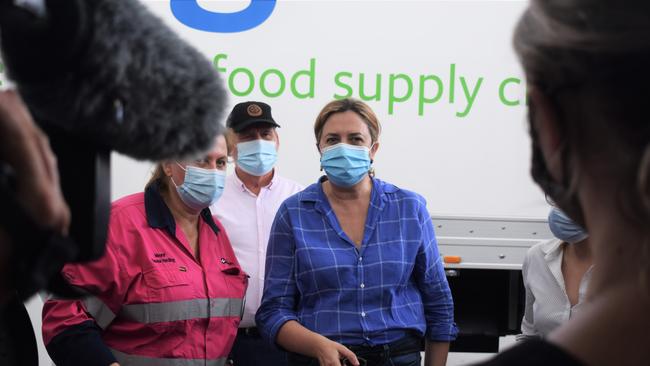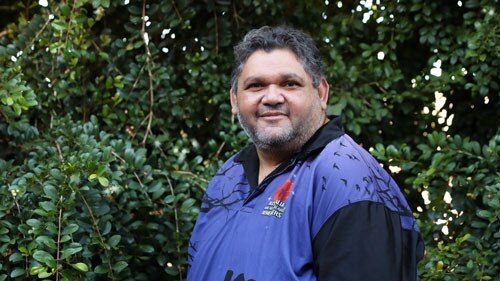Ipswich power players keeping the region afloat during time of turmoil
Meet the top secret power players who have given countless research, help and money to our region and who proudly call Ipswich home.
Ipswich
Don't miss out on the headlines from Ipswich. Followed categories will be added to My News.
The Ipswich community is growing faster than any other area of the state and there are a number of vital organisations and power players determined to keep the region afloat following economic challenges like the recent floods and the Covid pandemic.

Meet 11 secret players who underpin, enhance, and support the diverse region and its booming population regardless of their socio-economic background and the interesting thing is they often don’t come into the limelight.
COMMUNITY HEROES
Aunty Jill Davidson
In the first three months of 2022 1,093 people moved to the area, and as more people relocated in search of affordable housing, the housing crisis has put additional strain on vulnerable members of the community.

In honour of indigenous Elder Aunty Jill, the state government and St Vincent de Paul opened a public housing complex in 2021 to provide a safe haven for those living on the streets or in crisis accommodation.
For decades Aunty Jill has given back to the community and established a number indigenous community organisations and is the founder of the Purga Mission, and on the board of directors for Kambu Aboriginal and Torres Strait Islander Corporation for Health.
Aunty Jill Davidson’s Place has 15 units and allows tenants to access support directly inside the building, creating an integrated support model.
InCommunity’s Paul Tommasini and Lynn Mount
Another key organisation that has been supporting at risk youth since 1982, is InCommunity, which supported at least 1,691 people in the last financial year.
InCommunity provides; crisis housing, support outreach programs, safe space programs for women to connect, food relief for those in need, and free tenancy literacy courses.

InCommunity CEO Paul Tommasini said the non-for-profit works with the communities most vulnerable who are homeless or at risk of homelessness.
“The situation can drag you down quite quickly, it’s not a situation that anyone would find easy,” he said.
“Growing up I saw a lot of people who had significant strengths and skills who weren’t reaching their potential because of certain things in their life.
“The amount of people we get in, particularly at our crisis centre, who are amazing artists, musicians, but they don’t activate that because of challenges or barriers.
“So for me it’s about how we as an organisation and as a community inspire people to become the best versions of themselves - it’s about benchmarking against ourselves, not others. Everyone has something different to offer the world.
“Just because someone has hit a rough patch or is in a crisis doesn’t mean that that is their narrative for the rest of their life.”
Mr Tommasini said the demand for services increased by 650 per cent since the pandemic and that “hands down” the biggest challenge they were facing was a housing shortage.
“Construction isn’t quick enough, there’s been a lot of talk over the years about what’s needed and now is the time rubber has to hit the road, the sound of construction needs to be louder than the sound of debate to get this happening,” he said.

Head of the InCommunity board, Lynn Mount said she was incredibly proud of the organisation and the hard work of on the ground staff.
Ms Mount said in particular the free Tenancy Skill Institute program was a great success at helping those at risk find and hold down a place to call home.
“We found a gap and need for people, particularly in the homeless space, that needed to have these skills… if you haven’t done it before then you don’t know how to do it,” she said.
“We self-funded a trial program in Ipswich to start with and then we went to the state government… and they funded us to do a statewide program which we have now rolled out – (now) we are looking to do more in that space on a national scale.”
Ms Mount said for her personally, she was worried about the effect a possible global recession would have on all non-for-profits and charity organisations who are already feeling additional demands off the back of the pandemic.
“The question that comes from that will be how will governments support them and what other means do we have for sustainability into the future?” She asked.
“We will have to look beyond now and into the future. We want to sustain the sector so we can help the people in the community and at this point we are doing a reasonable job but we could do better.”

A Ipswich City Council statement in May stated that storms, floods, and Covid slowed Ipswich’s residential development sector.
Mayor Teresa Harding said population growth remained strong, however, “council’s latest quarterly planning and development report card showed signs of a slowing.”
“Other external factors such as increased cost of living and challenges in the building supplies delivery chain may also be a factor.
“This has been reflected in lower figures in new housing lots created and approved, development applications lodged and determined, and the number of new dwellings.”
Mayor Harding said 393 homes were built between January and March, bringing Ipswich’s total to 87,931.
SUPORTING IPSWICH’S FUTURE
Homecorp Property Group, APD co-founders, and HB Land
Construction is leading Ipswich’s industry sector with more than 10,000 local businesses registered with the council.
A number of companies are shaping the way the community lives, including national developer Homecorp who recently began developing the already ‘sold out’ Greenwood village Estate at Redbank Plains.
APD Projects landed one of the state’s most sought after areas in the Ripley Valley Priority Development Area, where they plan to build at least 229 houses.
HP Land is another in the process of building 577 lots as part of their Bellevue Ripley project, and another 323 lots at ‘The Pocket’ at Collingwood Park.
These developments barely scratch the surface of housing projects set for Ipswich.

KEEPING IPSWICH STRONG & SAFEGUARDING INDUSTRY
Sunny Queen Australia, Australian Country Choice, and Bell Pastoral Company
A long standing pillar of the Ipswich’s economy has been the agricultural sector and local farmers continue to ensure food is hitting plates despite supply chain issues and the rising cost of living.
With its head office at Carole Park, Sunny Queen Australia has gone from local production to nationally supplying millions of eggs.
Sunny Queen CEO Julie Proctor said the grassroots company works closely with nearby farmers to ensure everyone has access to affordable and protein rich eggs and products, which are sourced with sustainability and animal welfare in the forefront of the mind.
“Our mission to feed millions of people nutritious protein every day has been challenged through the supply chain with Covid and floods,” Ms Proctor said.
“But our focus remains on producing affordable protein.
“Eggs are the highest quality protein you can get so we’re continuing to try and make them affordable as prices are increasing and people are doing it really tough.”

Ms Proctor said being with the company in various roles for 18 years instilled a passion in her for the industry and a drive to make it better for customers, the animals, and the environment.
“We are working with major retailers, they have announced they will shift from cage to cage free eggs by 2025, and that’s one of the biggest transitions and disruptions in egg industry history,” she said.
“We have a farm that is carbon neutral which is pretty exciting – our ongoing commitment to sustainability is at the core of what we do.
“We have a huge responsibility and an opportunity to make a positive difference as much as we possibly can in the food space we work in.”
Third-generation beef company Australian Country Choice and Bell Pastoral Company also have farms at Rosewood contributing to the beef and dairy industry.

Agriculture is Ipswich’s fifth largest employer, behind the health care and social services sector which grew between 2020 and 2021 with more than 94 new businesses registered with council.
KEEPING IPSWICH HEALTHY
Kambu Health’s Allan Fisher
Kambu Health based in Booval and Goodna, has been filling the gap and ensuring local indigenous and Torres Strait Islander people have had access to good health care since the 70s.
Kambu Health was started by resident’s Ken Dalton, Roberta Thompson, Faye Carr, Bill Robertson, Doreen Thompson, and Cecil Fisher - whose son, Allan Fisher, is now the organisation’s chairman.
Mr Fisher said he is a proud Wakka Wakka man who is passionate about his mob’s health and wellbeing now and into the future.

The pressure of a rising population is felt keenly on Ipswich roads and vial infrastructure to help prevent gridlock from slowing economic productivity, growth, and the region’s liveability.
In May Ipswich Mayor Harding urged federal election candidates to commit to investing in the region’s roads, particularly the Centenary Highway.
“Without public transport options, such as the Ipswich to Springfield Central Public Transport Corridor, hundreds of thousands of new residents and businesses will be forced to use the highways, leading to congestion and putting the brakes on the economic and social growth for the whole region,” Mayor Harding said.
While the population boom continues to put pressure on numerous aspects of the local economy, especially in housing and heath, there are a number of determined organisations dedicated to keeping it afloat – just like they did during the pandemic and recent flood disaster.



